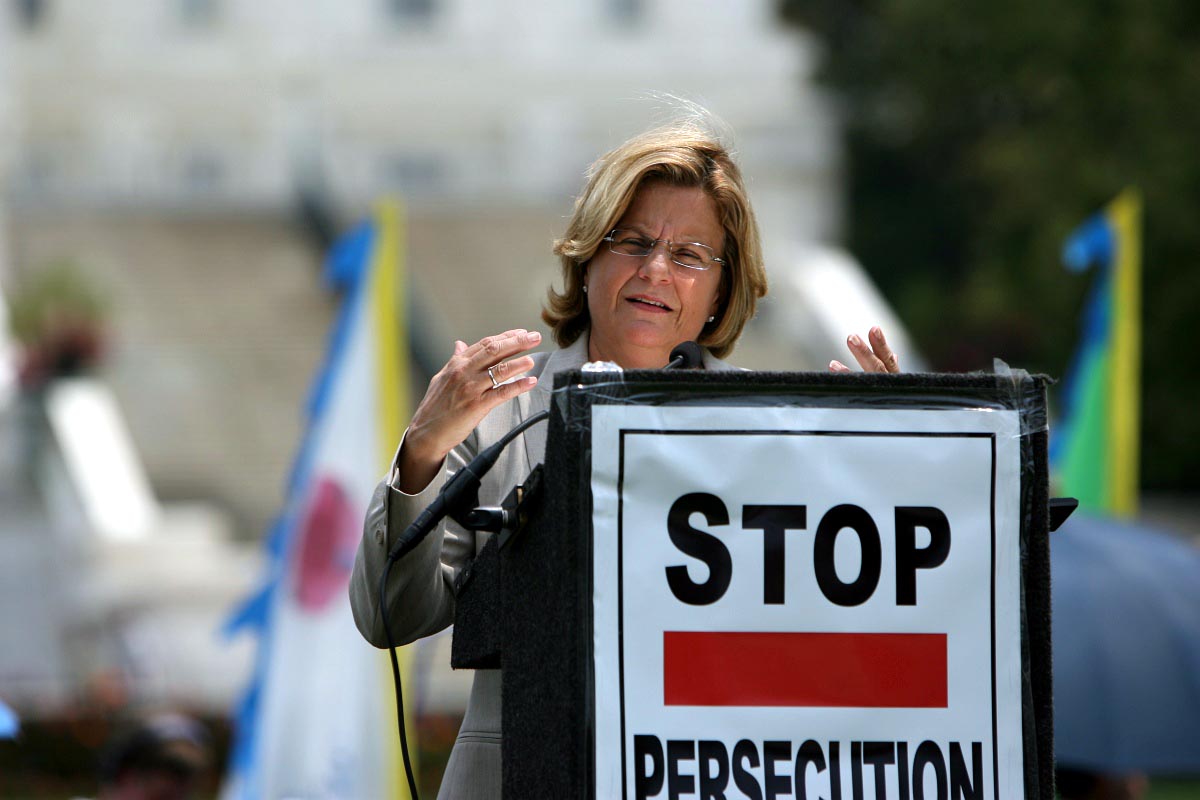China’s Security Shake-Up: Top Anti-Falun Gong Official Purged
On the eve of June 10, China’s top anti-corruption body, the Central Commission for Discipline Inspection (CCDI), announced the fall of Gao Yichen, a key Xi loyalist within the security apparatus. Gao, the former deputy director of the Central Leading Group Office for Preventing and Dealing with Cult Issues, was placed under investigation for serious violations of discipline and law. This office, originally known as the Central 610 Office, had been established by former Chinese Communist Party (CCP) leader Jiang Zemin on June 10, 1999, with the explicit purpose of suppressing Falun Gong, a spiritual discipline founded on the principles of truthfulness, compassion, and forbearance. Jiang bypassed China’s legal framework to create this extra-legal body, instructing it to eliminate Falun Gong within three months. Gao, now 75, had served as a vice minister of China’s Ministry of State Security (MSS) before his appointment as executive deputy director of the Central 610 Office in 2005. In the same year, he became deputy secretary general of the Central Political and Legal Affairs Commission while concurrently holding leadership roles in the Central Office for Stability Maintenance and the 610 Office.
Commentator Tang Jing Yuan pointed out two significant aspects regarding the timing of Gao’s downfall. First, the announcement of his investigation was made only hours before June 10, the founding date of the 610 Office. Tang suggested that this symbolic timing indicated a direct connection between Gao’s investigation and his role in the office. Second, the CCDI’s official notice referenced Gao’s title related to anti-cult activities but notably omitted his sensitive past role as vice minister of state security—a position that oversaw intelligence and counterintelligence operations. Tang underscored that, unlike previous heads of the 610 Office who were typically drawn from the Ministry of Public Security, Gao had been the first high-ranking official from the MSS to assume the role. This distinction suggested that his primary mandate was not only to suppress Falun Gong domestically but to extend the persecution internationally through covert intelligence operations. State media had previously acknowledged Gao’s extensive overseas experience, which Tang interpreted as a subtle acknowledgment of his deep involvement in foreign espionage.
Following his official retirement in March 2017, Gao continued to wield influence in ideological campaigns. He took up senior positions at the Chinese Yan Wang Culture Research Association, serving as executive vice president, party secretary, and chief adviser to the Committee for Civilizational Inheritance. These roles indicated that he remained active in broader efforts to target Falun Gong beyond China’s borders. In August 2024, the ‘New York Times’ spearheaded a media campaign attacking Shen Yun Performing Arts, an organization affiliated with Falun Gong. This media effort was accompanied by legal challenges from aligned figures, whose lawsuits aimed to tarnish Falun Gong’s reputation and legitimacy in Western circles. Tang suggested that this was an orchestrated attempt to entangle the United States in the CCP’s persecution campaign, undermining America’s moral credibility and silencing criticism of Beijing’s human rights abuses. Tang further warned that CCP infiltration of U.S. media outlets, such as the ‘New York Times’, had likely been in motion for decades—possibly dating back to Gao’s tenure at the 610 Office when foreign operations were a priority.
Tang concluded that the timing of Gao’s downfall, occurring just before June 10, signalled a broader political shift. With Xi Jinping’s grip on overseas suppression weakening, internal restructuring within the CCP’s upper echelons appeared to be underway. Gao’s sudden fall seemed to mark the end of an era for one of Xi’s most dedicated enforcers.
Meanwhile, commentator Li Yanming reflected on the larger significance of the CCP’s 26-year persecution of Falun Gong practitioners, who adhere to principles of truthfulness, compassion, and forbearance. He highlighted the brutal tactics involved, including reports of live organ harvesting, and noted that these methods had allegedly been extended beyond China’s borders.
Li described the persecution as both a national tragedy for the Chinese people and a disaster for humanity, exacerbating moral, social, economic, and political crises within Chinese society. He observed that individuals responsible for this persecution were increasingly facing consequences, while anti-CCP sentiment continued to grow domestically and internationally.
Furthermore, Li pointed to alleged celestial omens foreshadowing the CCP’s decline, arguing that such signs had become increasingly difficult to dismiss. He warned that China stood at a pivotal crossroads, where survival—not merely politics—had become the overriding concern for leadership in Zhongnanhai.













